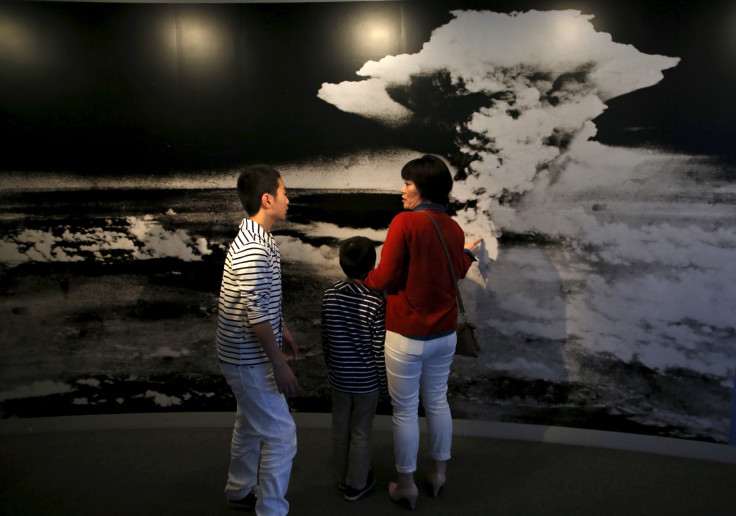Hiroshima And Nagasaki Were Bombed For A Reason: China Clashes With Japan

A war of words has erupted between China and Japan about their respective World War II legacies. China has blocked Japanese efforts to commemorate the Hiroshima and Nagasaki bombings at the United Nations Nuclear Disarmament Conference and accused Japan of playing the victim.
The United Nations disarmament conference in its month long meeting had come out with a final outcome document that inserted an invitation from Japan to visit the atomic-bombed cities of Hiroshima and Nagasaki. This was met with staunch disapproval from the Chinese officials who felt that Japan was portraying itself as a victim rather than the “victimiser”.
Chinese Ambassador for Disarmament Affairs Fu Cong told Kyodo News, as quoted by Japan Times, that he had requested that the mention of Hiroshima and Nagasaki visits to be dropped. He said, “We don’t want any mention of Hiroshima and Nagasaki because there are reasons why those two cities were bombed.”
The Chinese envoy also faulted the Japanese attitude towards “comfort women” and other war time atrocities perpetrated by Japanese forces in Korea and China during World War II. Diplomatic sources also stated that South Korea has sided with China about the inclusion of any reference to Hiroshima and Nagasaki. But a spokesman for the Japanese delegation told Al Jazeera America that Japan just wanted the world to realise the horrors of nuclear war to move towards a world without nuclear weapons. The spokesman has also reiterated that Japan “will continue to do their best” to include the mention of the bombings in the final version of the documents.
The spokesman for the U.N.’s Office for Disarmament Affairs, Ewen Buchanan, said that some countries have voiced their objections as they felt that “other aspects of the Second World War might deserve a mention too.” But countries like Australia have been supportive of the Japanese bid.
Both China and Japan have had an uneasy relationship due to their historical baggage and the dispute in the South China Sea. Critics have accused both countries of distorting historical facts to push their own political agendas. United Nations Nuclear Disarmament Conference Outcome Document is the latest flash point in the international arena for both nations.
For questions/comments regarding the article, you may email the writer at honeygeorge74.ibtimes@gmail.com.




















